Primary Level Course Information
HFSE uses a self-developed integrated curriculum combining syllabus from Singapore, and the Philippines. Modules on Languages, Social Studies, Arts, Values Education, Christian Living are integrated into the academic programme.
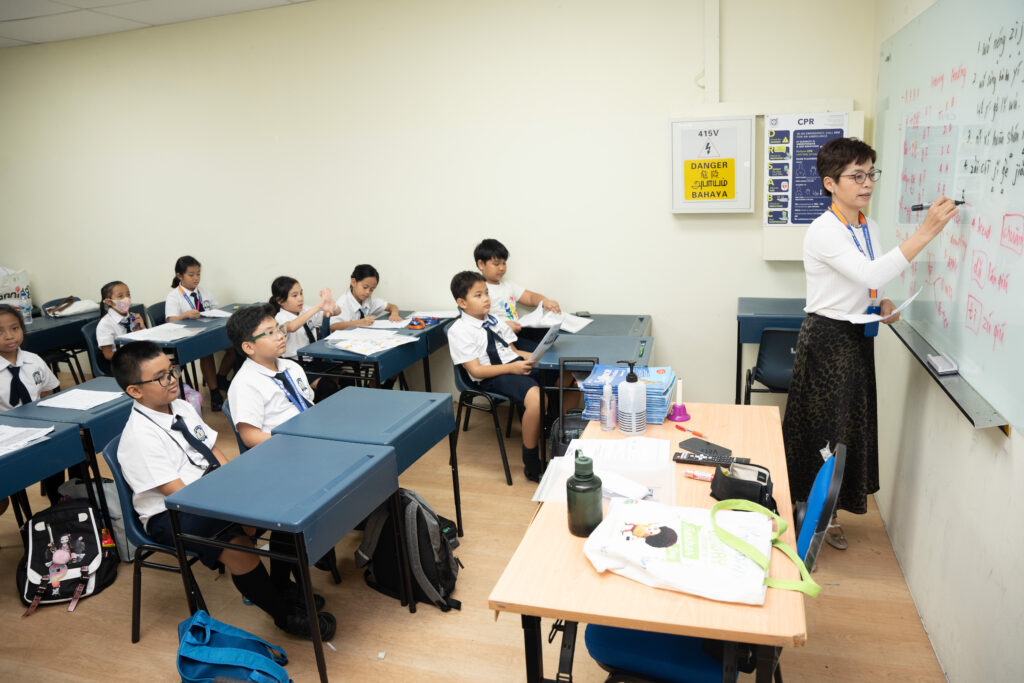
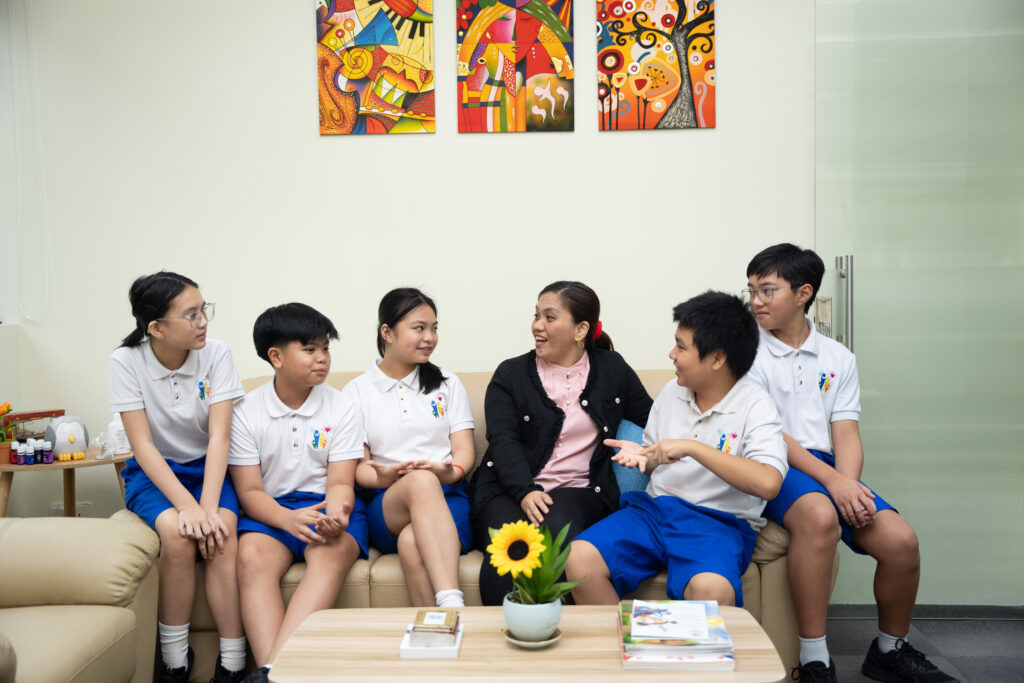
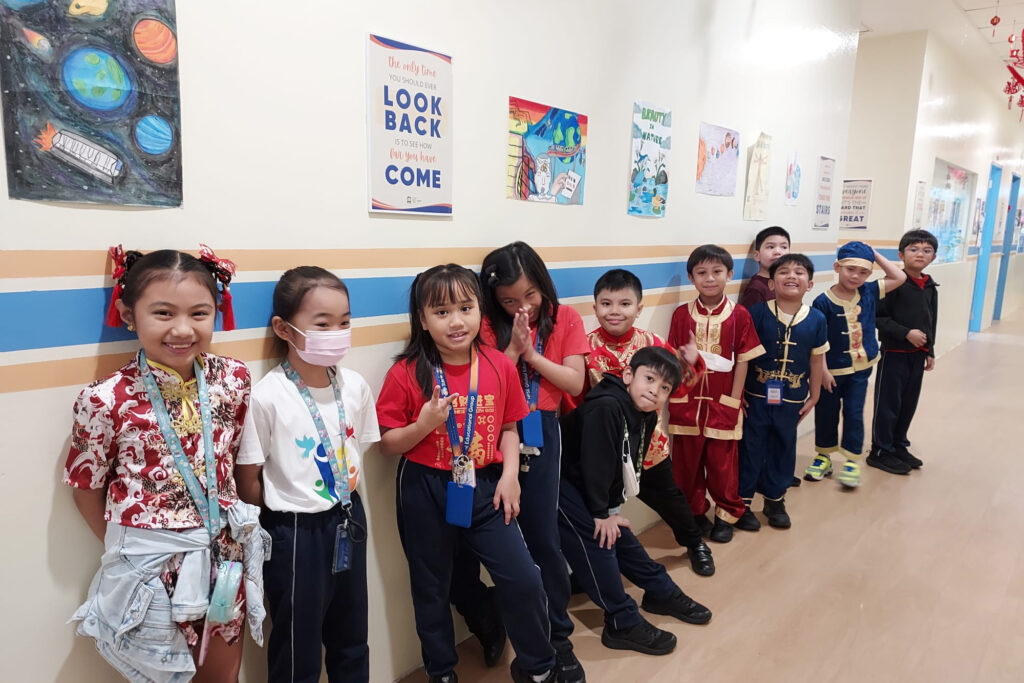
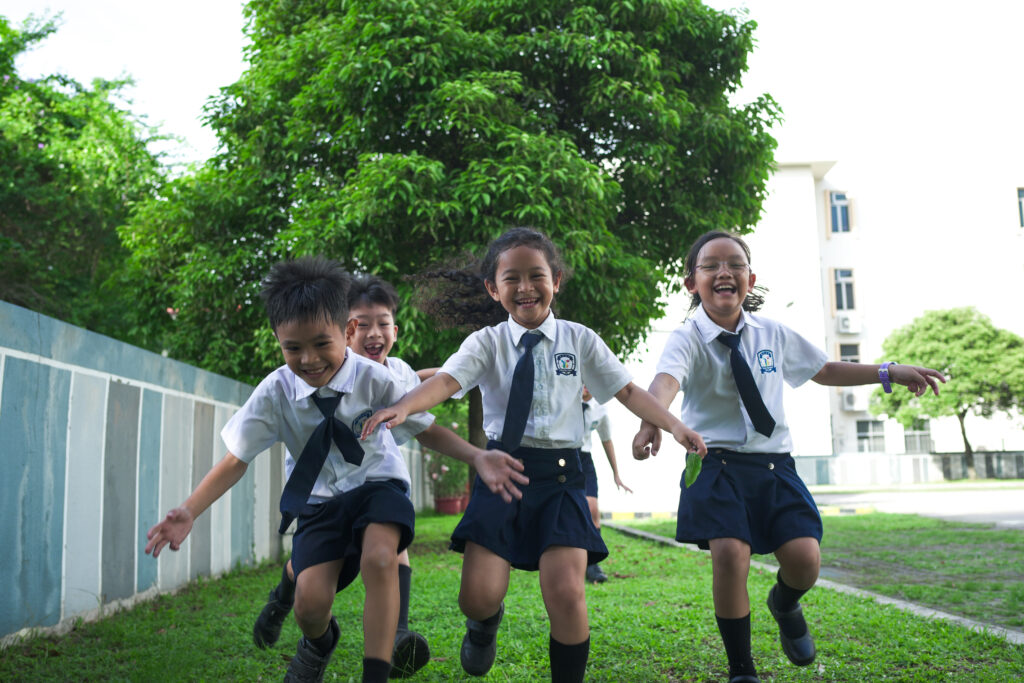
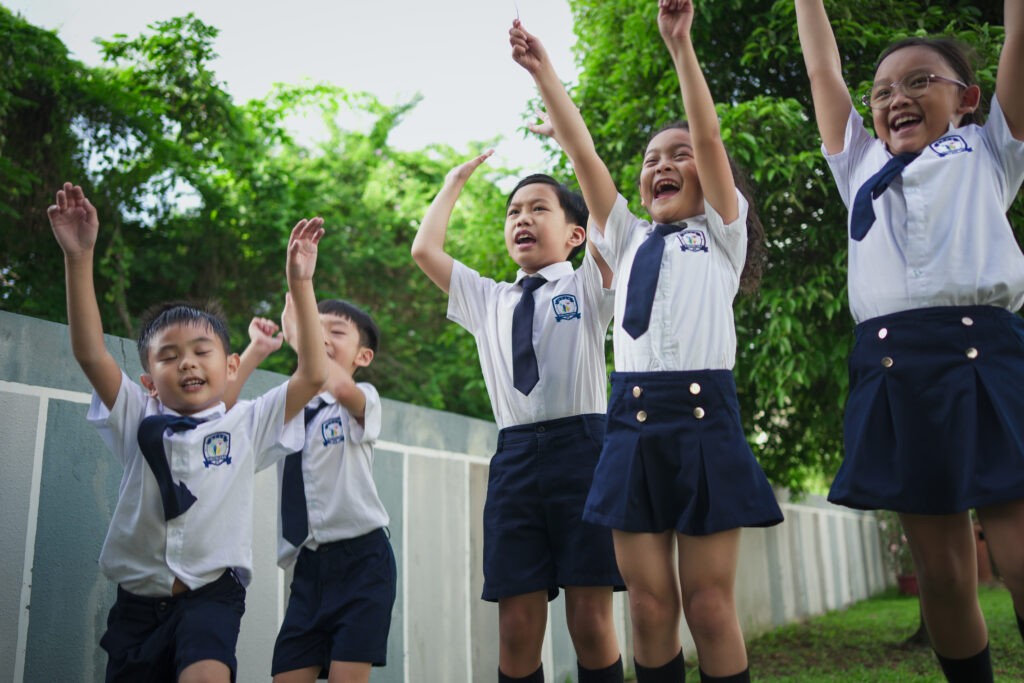
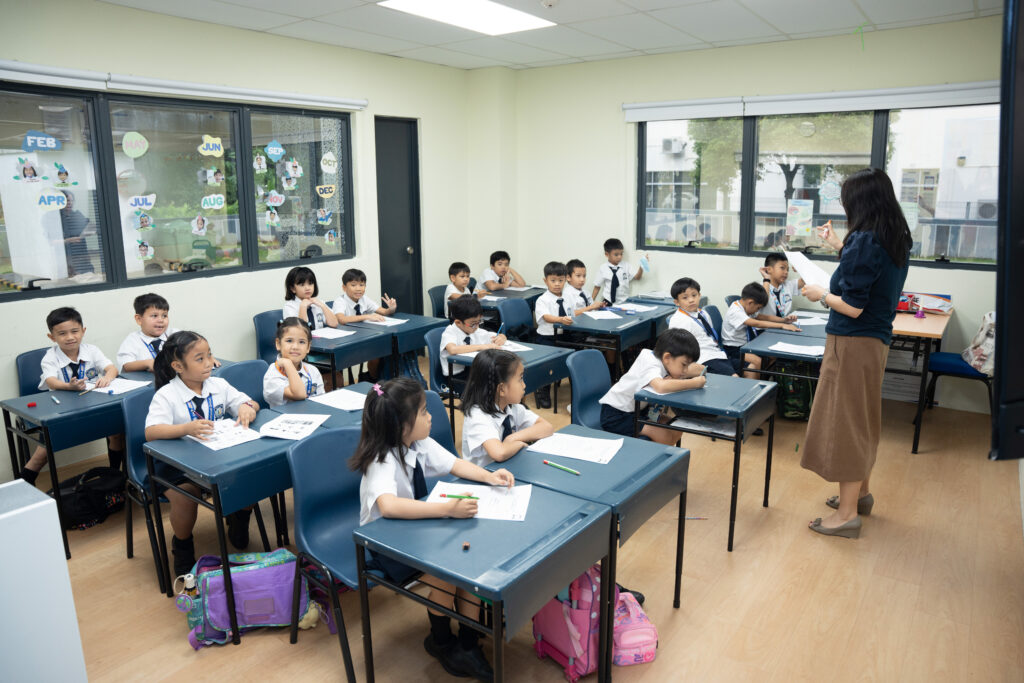
Students will be graded on the following
- Topical Tests for all subjects taught
- Class Participation
- School Activities & Events
- Behaviour in Class
Course Details
Approved Course Title
- Primary One
- Primary Two
- Primary Three
- Primary Four
- Primary Five
- Primary Six
Mode of Delivery
Face-to-Face
Minimum Entry Requirements
Passed the Entrance Test
Age Requirement
Primary One: 6 years old
Primary One: 7 years old
Primary Three: 8 years old
Primary Four: 9 years old
Primary Five: 10 years old
Primary Six: 11 years old
Type of Certificate Awarded
Certification of Completion
Requirement for Graduation
- Academic competency (75% passing grade).
- Minimum 80% attendance required.
- Adherence to behavioural standards and character guidelines.
Teacher – Student Ratio
text
Primary One
1:20
Primary Two – Three
1:25
Primary Four – Six
1:35
Modules Taught
English
Singapore’s Ministry of Education Syllabus
Mathematics
Singapore’s Ministry of Education Syllabus
Science
Singapore’s Ministry of Education Syllabus
Mother Tongue
International Syllabus
History (Secondary One & Two)
International Syllabus
Humanities (Secondary Three & Four)
International Syllabus
Contemporary Art
International Syllabus
Literature
International Syllabus
Co-curricular Activities
International Syllabus
Pastoral Ministry And Personal Development
International Syllabus
Physical Education and Health
International Syllabus
Mode of Assessment
- Written Work
- Performance Tasks
- Term Examinations
Duration
10 months (full-time)
Commencement Date
06 January 2025
End Date
Primary One to Two: 17 November 2025
Primary Three to Five: 18 November 2025
Primary Six: 20 November 2025
Modules Learning Objectives
English
The student listens for comprehension, speaks clearly and uses appropriate expressions in talking about oneself, family, and other social context interactions.
Mathematics
In this subject, students will acquire the necessary Mathematical concepts and skills for everyday life, and for continuous learning in Mathematics and related disciplines. Starting with numbers 1 to 100, know how to compare and tackle number patterns, simple addition, subtraction, multiplication, division, mass, length and money. They also develop the necessary process skills for the acquisition and application of Mathematical concepts and skills.
Science
At the end of Primary 1, learners will use their senses to locate and describe the external parts of their body; to identify, external parts of animals and plants; to tell the shape, color, texture, taste, and size of things around them; to describe similarities and differences given two objects; to differentiate sounds produced by animals, vehicles cars, and musical instruments; to illustrate how things move; to, describe the weather and what to do in different situations; to use appropriate terms or vocabulary to describe these features; to collect, sort, count, draw, take things apart, or make something out of the things; to practice healthy habits (e.g., washing hands properly, choosing nutritious food) and safety measures (e.g., helping to clean or pack away toys, asking questions and giving simple answers/ descriptions to probing questions).
Mother Tongue
Pagkatapos ng Unang Baitang, inaasahang nauunawaan ng mga mag-aaral ang mga pasalita at di-pasalitang paraan ng pagpapahayag at nakatutugon nang naaayon. Nakakamit ang mga kasanayan sa mabuting pagbasa at pagsulat upang maipahayag at maiugnay ang sariling ideya, damdamin at karanasan sa mga narinig at nabasang mga teksto ayon sa kanilang antas o nibel at kaugnay ng kanilang kultura.
Mother Tongue (Mandarin)
Music Education
Arts Education
Physical Education
Health Education
Christian Living
Social Studies
English
Mathematics
Science
Mother Tongue
Mother Tongue (Mandarin)
Music Education
Arts Education
Physical Education
Health Education
Christian Living
Social Studies
English
Mathematics
Science
Mother Tongue
Mother Tongue (Mandarin)
Music Education
Arts Education
Physical Education
Health Education
Christian Living
Social Studies
English
Mathematics
Science
At the end of Primary 4, learners can investigate changes in some observable properties of materials when mixed with other materials or when force is applied on them. They can identify materials that do not decay and use this knowledge to help minimize waste at home, school, and in the community.
Learners can describe the functions of the different internal parts of the body in order to practice ways to maintain good health. They can classify plants and animals according to where they live and observe interactions among living things and their environment. They can infer that plants and animals have traits that help them survive in their environment.
Learners can investigate the effects of push or pull on the size, shape, and movement of an object.
Learners can investigate which type of soil is best for certain plants and infer the importance of water in daily activities. They learned about what makes up weather and apply their knowledge of weather conditions in making decisions for the day. They can infer the importance of the Sun to life on Earth.
Mother Tongue
Mother Tongue (Mandarin)
Chinese language has become the most spoken language in the world. As such, this module aims to prepare our students to be globally competitive citizens, through learning common words and phrases that they can use in their daily lives as they interact with their Chinese neighbors. In addition, this module explores the rich culture of Chinese people, which would facilitate a better understanding that is crucial for building positive relationships with other people from this race. This subject will significantly provide a venue for the learners to communicate with confidence and creativity; and develop a sense of passion for speaking the language.
Moreover, this module is designed to prepare the students to meet the requirement of HSK 1 by the end of Primary 4, which is 150 words. It aims to help students understand the essence of the language and use it in practical applications such as the use of some simple Chinese characters and sentences to communicate that would make them ready for continuing their Chinese studies.
Music Education
Arts Education
Students will learn to identify and differentiate visual qualities while gathering information from visuals and what they see, share ideas and experiences in art works and through art making. They can explore and experiment different ways to use art materials and media and take pride in their own art making as they
discuss artworks using basic art vocabulary (elements of art and principles of design.)
Physical Education
Health Education
Christian Living
Social Studies
English
Mathematics
Science
At the end of Primary 5, learners can decide whether materials are safe and useful by investigating about some of their properties. They can infer that new materials may form when there are changes in properties due to certain conditions.
Learners have developed healthful and hygienic practices related to the reproductive system after describing changes that accompany puberty. They can compare different modes of reproduction among plant and animal groups and conduct an investigation on pollination. They have become aware of the importance of estuaries and intertidal zones and help in their preservation.
Learners can describe the movement of objects in terms of distance and time travelled. Learners recognize that different materials react differently with heat, light, and sound. They can relate these abilities of materials to their specific uses.
Learners can describe the changes that earth materials undergo. They can make emergency plans with their families in preparation for typhoons. They can observe patterns in the natural events by observing the appearance of the Moon.
Mother Tongue
Mother Tongue (Mandarin)
Chinese language has become the most spoken language in the world. As such, this module aims to prepare our students to be globally competitive citizens, through learning common words and phrases that they can use in their daily lives as they interact with their Chinese neighbors. In addition, this module explores the rich culture of Chinese people, which would facilitate a better understanding that is crucial for building positive relationships with other people from this race. This subject will significantly provide a venue for the learners to communicate with confidence and creativity; and develop a sense of passion for speaking the language.
Moreover, this module is designed to equip the learners to use Chinese in a simple and direct manner, applying it in a basic fashion to their daily lives. At the end of Primary 6, students learnt 300 words and are ready to sit for the HSK Level 2 test. In this manner, this subject area aims to help students understand the practical use of the language and understand its significance s to communication and collaboration inside and outside the school.
Music Education
Arts Education
Physical Education
Health Education
Christian Living
Social Studies
English
Mathematics
Science
Mother Tongue
Mother Tongue (Mandarin)
Chinese language has become the most spoken language in the world. As such, this module aims to prepare our students to be globally competitive citizens, through learning common words and phrases that they can use in their daily lives as they interact with their Chinese neighbors. In addition, this module explores the rich culture of Chinese people, which would facilitate a better understanding that is crucial for building positive relationships with other people from this race. This subject will significantly provide a venue for the learners to communicate with confidence and creativity; and develop a sense of passion for speaking the language.
Moreover, this module is designed to upskill the learners with the use of the language in a simple and direct manner, applying it in a basic fashion to their daily lives. At the end of Primary 6, students learnt 300 words and are ready to sit for the HSK Level 2 test. Thus, assisting in creating groups of learners who understand the practical use of the language and understand its significance s to communication and collaboration inside and outside the school.
